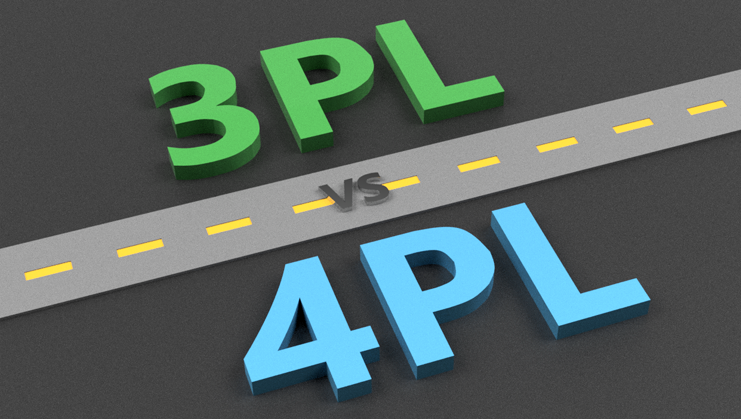It is important to shop around when looking for a partner to meet your logistic needs. The differences between 3PLs and 4PLs can be confusing as the lines between the two often blur. Below is a short description of the different types of logistics, with an example for each. While this breakdown is a general idea of how the different logistic types work, each logistics business operates in its own manner. Research and discussion should be done with potential 3PL and 4PL partners to learn what services they offer and which provider will be right for your organization.
First Party Logistics (1PL):
A 1PL is when a business handles transportation and logistics needs in-house. A local farm delivering milk to a convenience store would be an example of a 1PL.
Second Party Logistics (2PL):
A 2PL is a business that specializes in the transportation of products from one location to another. A local lumber-mill hiring a transportation company to deliver their wood to a hardware store is an example of a 2PL.
Third Party Logistics (3PL):
A 3PL is when a company specializes in the storage and transportation of product for another business. A 3PL may also oversee packaging and crating of product, and sometimes offer additional services as needed. 3PLs are usually asset-based but may subcontract out pieces of the logistics, such as transportation. 3PLs also may have more than one point of contact when referencing the supply chain. An example of a 3PL would be a manufacturing company contracting out the transportation, packaging, and warehousing of their product.
Fourth Party Logistics (4PL):
Like a 3PL, a 4th Party Logistics will oversee the transportation, packaging, and storage of a business’s product, but they will also give strategic direction to the business based on analytics. Often 4PLs are non-asset based and shop around for different vendors to complete a supply chain for the best value. A 4PL generally has one point of contact for everything referring to the supply chain. For example, an adhesive manufacturer that hires a 4PL will have their supply chain needs met with little to no involvement. The 4PL would offer strategic advice, such as suggesting to increase glue production based on market trends.
Which is Best for My Business?
If a business needs logistical support, they may be stuck deciding between a 3PL and 4PL provider. If your business is capable of researching market trends and conducting statistical analysis in-house, then the extra services offered by a 4PL may not be needed. There is no reason to pay for analytic support and advice if a business’s team is already handling it themselves. If a business does not have the capability to conduct the analytical research, then a 4PL may be desirable as it can offer insight that the business otherwise would be missing.
Lippert Enterprises offers various 3PL Services, such as: Legacy Parts Management, Packaging & Co-Packaging, Kitting, and Government Sales Management. To learn how Lippert can help you achieve your inventory needs, contact us here!
